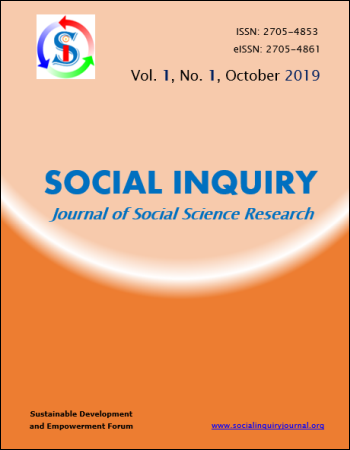Formative Assessment and Achievement of Mathematics Students in Community Schools of Nepal
DOI:
https://doi.org/10.3126/sijssr.v1i1.26918Keywords:
Assessment, feedback, achievement, Mathematics students, NepalAbstract
Formative assessment is one of the leading elements of every classroom instruction for making learning contextual and students centred. The formative assessment creates such space where a teacher as adult supporter plays the role of scaffolding on the learning performance of their students. I studied the formative assessment and students' achievement status in mathematics through survey research design. I used the contingency questionnaire as research tool under quantitative research approach. The study was conducted within the target population; total number of community schools and their mathematics students (i.e. 547) who have participated in District Level Examination in 2014. I employed simple random sampling procedure to select the sample respondents (i.e. 232). The contingency questionnaire for students with 0.74 value of internal consistency was used as a research tool to collect the basic information for the study. Regarding the theoretical framework, I used Tomlinson's Differentiated Classroom Instruction and Assessment: Philosophy of Differentiation. The research depicts that regularity of teachers' responses (check) or feedback on the students' classwork, homework, project work and tests have a creditable role in improving their students’ learning performance. Furthermore, project work, a form of formative assessment, helps to improve students’ learning performance through creating an opportunity for learning by doing, which also contributes to contextualize the abstract concept of mathematics.




